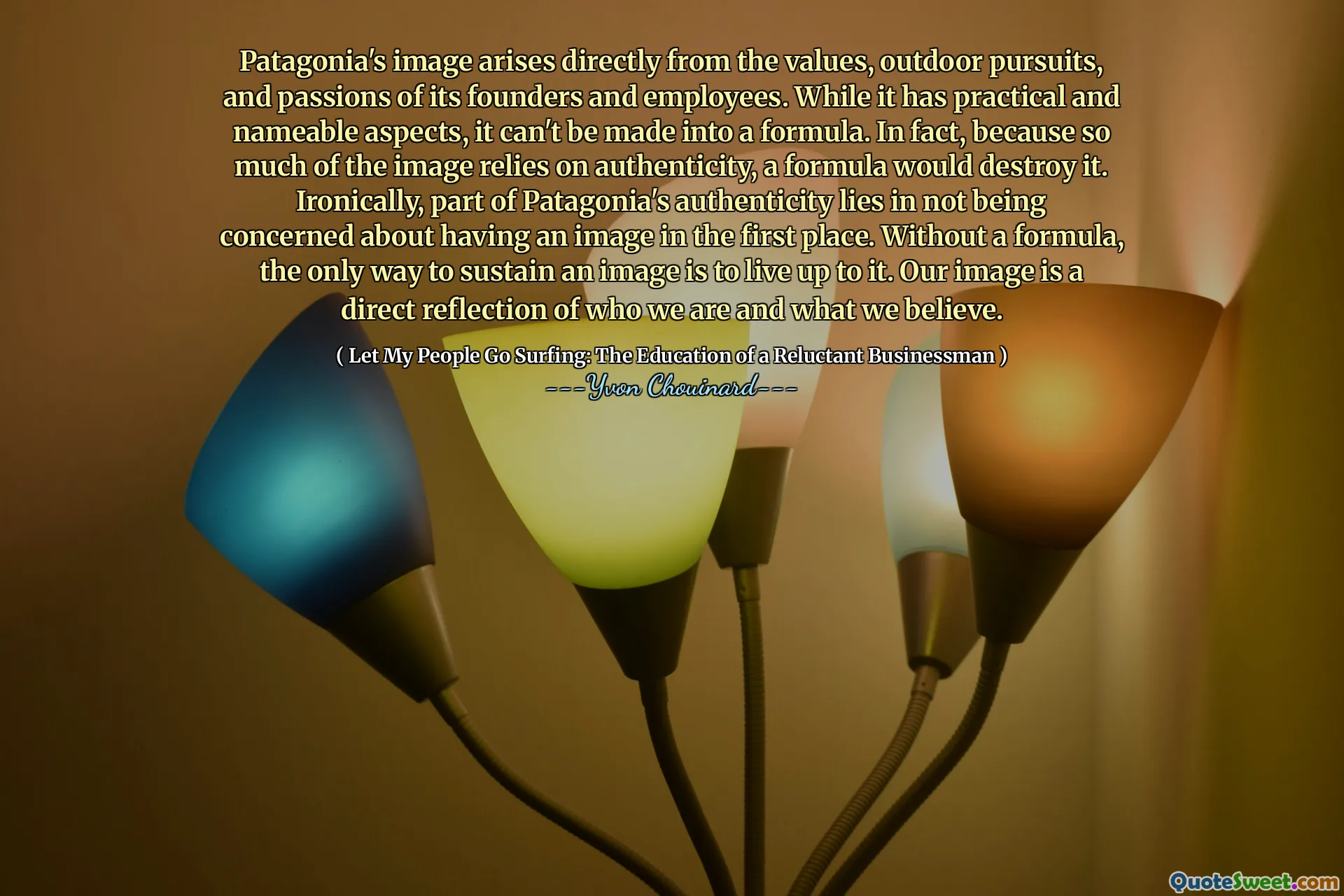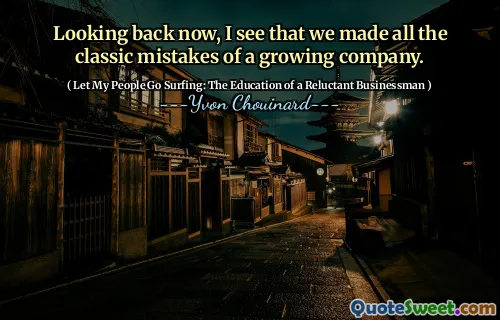
Patagonia's image arises directly from the values, outdoor pursuits, and passions of its founders and employees. While it has practical and nameable aspects, it can't be made into a formula. In fact, because so much of the image relies on authenticity, a formula would destroy it. Ironically, part of Patagonia's authenticity lies in not being concerned about having an image in the first place. Without a formula, the only way to sustain an image is to live up to it. Our image is a direct reflection of who we are and what we believe.
📖 Yvon Chouinard
This quote highlights the profound relationship between authenticity and corporate identity. It emphasizes that Patagonia's reputation isn't manufactured through marketing ploys or rigid branding formulas but is rooted deeply in the genuine values, passions, and practices of its founders and employees. The idea that attempting to craft a fixed image could undermine authenticity resonates strongly—it suggests that true brand integrity comes from living the principles internally, rather than externally projecting a specific image. This approach fosters trust and respect among consumers who value honesty and consistency. Moreover, the notion that the company consciously chooses not to focus on maintaining a particular image reinforces the importance of aligning actions with core values. The brand’s authenticity becomes self-sustaining because it is a natural extension of its culture rather than a contrived persona. This perspective invites any organization or individual to reflect on how true authenticity can’t be artificially manufactured but must be cultivated through genuine dedication and adherence to core beliefs. Indeed, Patagonia’s model demonstrates that the most compelling brand stories are those that are authentic and consistent, built from within rather than imposed from outside. Living authentically not only preserves integrity but also creates a resilient and inspiring identity that evolves organically over time, grounded in truth rather than superficial appearances.










